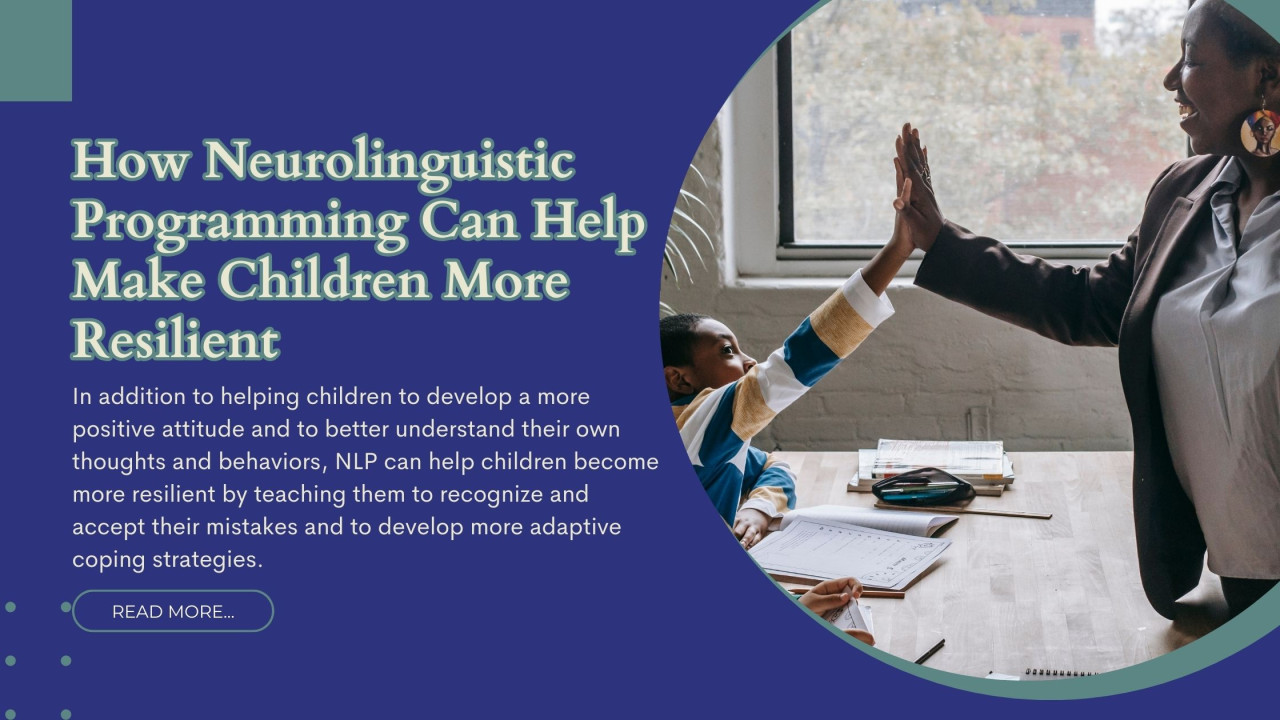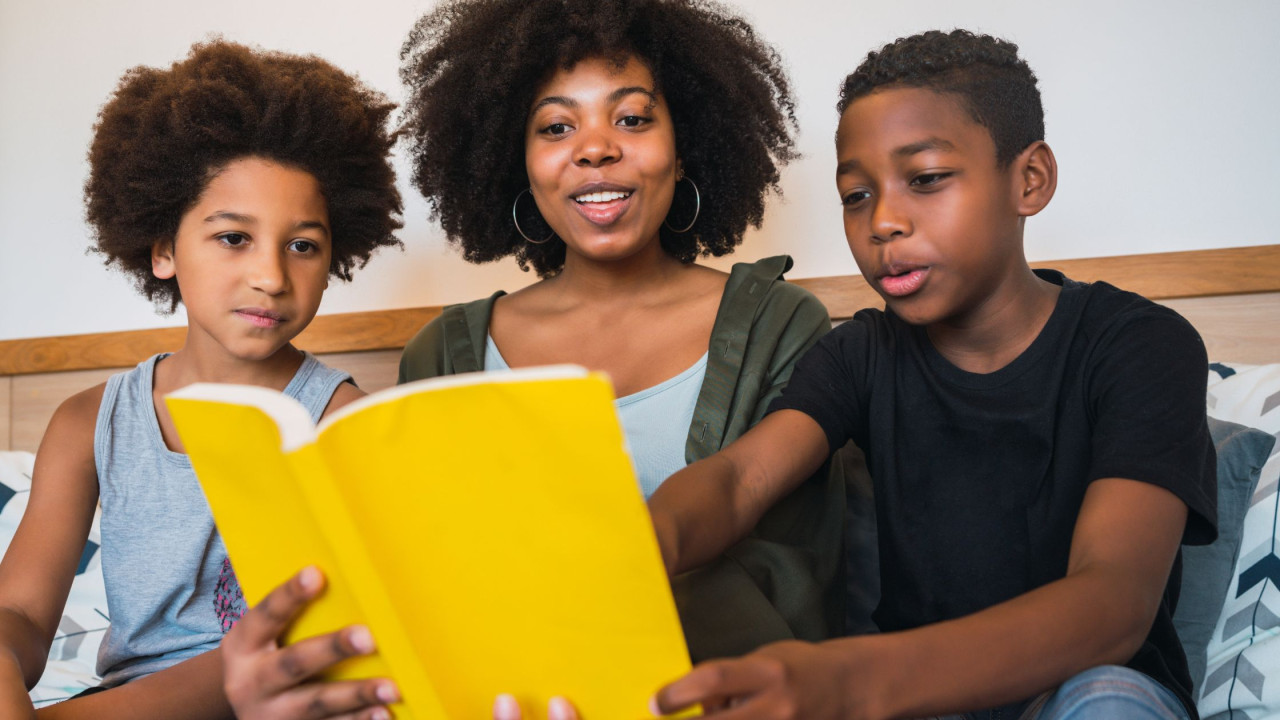(404) 793-0011 | drmaiysha@drmaiysha.com
How Neurolinguistic Programming Can Help Make Children More Resilient
If you have followed me for any length of time or watched any of my videos, you know that one of my primary messages is empowering emotional fluency and resilience in our young people. Having an 8-year son exposed to the language tools that I teach with NLP has shown me the enormous impact that these tools have on developing communication skills and confidence in our kids. This is why I often focus my videos, podcasts, and articles on parents and educators.
NLP teaches children how to identify, challenge, and modify their own beliefs and behaviors, as well as to recognize and respond to the beliefs and behaviors of others in a more constructive way. The tools of Neurolinguistic programming (NLP) can help children become more resilient and better equipped to cope with everyday challenges. While it may not be taught under the name "NLP" or "Neurolinguistic Programming", these tools of language and processing help our children to recognize and understand their own thought processes, behaviors, and actions. In addition to helping children to develop a more positive attitude and to better understand their own thoughts and behaviors, NLP can help children become more resilient by teaching them to recognize and accept their mistakes and to develop more adaptive coping strategies.
The other night my son was playing around at a time when I had asked him to get ready for a bath and bed. This isn't anything unusual for him, but this particular day I had been repeating myself multiple times throughout the day trying to keep him focused on what needed to be done. At that moment, I became upset and in an attempt to avoid harmful language, I left the room and went to my room to calm down. Later that night, I went to my son and asked him "Do you know why Mommy got upset earlier?" He said, "it was because I was goofing around, and when you asked me to stop I kept going. And because I have been doing that all day." I said, "well... that's only part of it..." I said, "when Mommy was young, there were many times when she felt unheard and diminished. This became a sore spot in mommy's heart. So now every time I feel unheard or not listened to, I re-open that little wound and I get upset. It doesn't only happen with you, it happens everywhere in my life. I'm working on it, but you need to know that's what happened." My son sat for a moment, then came to hug me and said, "Mommy, I'm sorry you didn't feel heard when you were a little girl. I know that's frustrating because at school sometimes I don't feel heard when my friends talk over me. I apologize that I made you not feel heard, and I will try to listen better."
Now, I am clear that this conversation could not have happened 1) without me having the tools to self-regulate and then the presence of mind to come back and explain my response, and 2) that he could process such a conversation at 8 years old and understand that this was my brain's response to an early childhood repetitive trauma even if he didn't know those exact words. While I know that it will not be the last time I'll have to repeat myself with my son, I also know that his understanding and emotional intelligence is expanded by these type of conversations we frequently have.
By teaching children how to recognize, analyze, and respond to their thoughts, feelings, and behaviors in a positive and productive way, NLP can help children become more emotionally fluent, compassionate, and resilient when faced with difficult emotions and circumstances. Because NLP focuses on teaching children to identify and understand their own thought patterns and behaviors and to recognize how their actions and reactions can influence their environment and their relationships with others, it can help children to be more confident, develop a positive self-image, and feeling comfortable in their own expression of themselves.
My son and I often have conversations about how his brain works, how my brain works, and our emotional processes. However, what I teach the parents that come to my NLP training is that one of the best ways to teach these tools to children is to model them ourselves. When we as parents, educators, and caretakers learn and train in neurolinguistic programming, we not only become models for our children, we heal, grow, and transform our own wounds into wins with ourselves and the people that matter most.
Join us for our next NLP training. Expand your listening capacity, learn trauma-informed communication, and navigate challenges with ease. Go to www.remapmymind.today. To Schedule a free NLP Training interest Today.
Stay Informed
When you subscribe to the blog, we will send you an e-mail when there are new updates on the site so you wouldn't miss them.





Comments